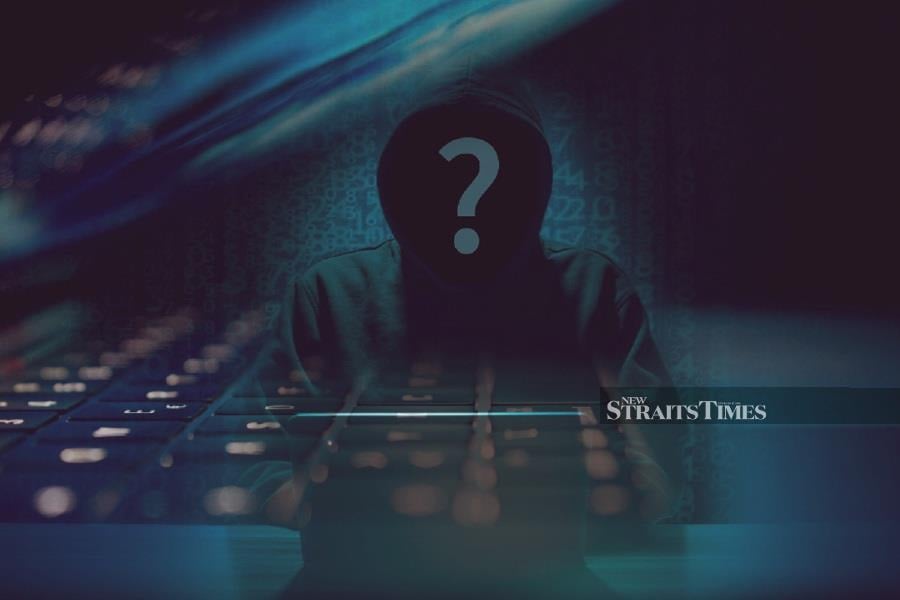KUALA LUMPUR: Continuous efforts are essential to enhance the cybersecurity features of the National Digital Identity (ID) and prevent Malaysians' data from falling into the hands of criminals.
Cybersecurity consultant C.F. Fong said a national digital ID was not a new concept and was inevitable considering the digitalisation push in government agencies and the private sector.
"The only thing we are concerned about is the security of the organisation that will host and manage the data.
"Do we have qualified personnel or experts to manage and secure the entire infrastructure?
"Based on the history of government agencies, there is room for improvement because we see that a lot of government agencies suffered data leaks. So I think we have to do better."
A digital ID, Fong said, would streamline consumers' interactions with government agencies, eliminating the need for accounts on multiple systems and enabling seamless sign-ins through a single ID.
Information leaks, he said, would allow criminals to take control of one's identity.
"The real concern is not data loss but 'identity theft' due to the lack of capacity or competencies of the party managing our digital ID.
"So, we need to enhance our cybersecurity and legal framework."
Fong stressed the need to educate the public on the benefits of such a system and the importance of protecting their devices to avoid data being stolen and abused by criminals.
Cybersecurity expert Murugason R. Thangaratnam said a centralised digital system with artificial intelligence and machine learning capabilities could improve security, and minimise fraud and identity thefts.
"This would mean suspicious patterns and unusual activities would be automatically flagged. As a result, fraud can be detected in real time, mitigating potential risks."
However, he said, a data leak from a centralised ID system would mean hackers would gain access to all platforms connected to the users' accounts, increasing the risk of identity fraud.
A potential obstacle to the widespread adoption of the system is its potential difficulty in working seamlessly with other systems, coupled with concerns about transparency, anonymity, and privacy. The added risk of data breaches and system crashes amplifies the potential reservations of the public.
"A single digital ID system puts too much power in the hands of database providers and governments, and malicious third parties could steal sensitive data.
"Privacy concerns also exist, as you would have limited control over how your data is collected, collated and shared.
"However, to win the trust of the public, the burden is on the data takers, database platforms and the government to convince them that the overall benefits of a single digital ID, especially with proper security provisions in place, will outweigh the risks and genuine concerns raised by the public and data owners."
He said the provisions must not only be encryption and multifactor authentication methods but also strong passphrase requirements, much like those used by cryptocurrency wallets.
Founder and patron of the International Islamic University Malaysia's Centre of Excellence for Cybersecurity Professor Dr Mohamed Ridza Wahiddin said the national digital ID was secure so long as supercomputers, like a quantum computer, were not widely available.
A quantum computer would allow users to crack the most common encryptions used to secure digital data.
"The real threat will be quantum computers, but (national applied research and development centre) Mimos (Bhd) already has the solution to counter quantum computer attacks, which is quantum cryptography," he said.
Quantum cryptography uses the principles of quantum mechanics to encrypt and transmit data in a way that cannot be hacked.
Digital ID is a form of digital identification and self-verification that people can use in online transactions.
The digital ID, however, will not replace the MyKad system.
Mimos is spearheading the implementation and development of the digital ID. It was reported that the facility would enable the government to target subsidies for the intended recipients.
When tabling the 2024 Budget in October, Prime Minister Datuk Seri Anwar Ibrahim, who is also the finance minister, said the government would expedite the development of the digital ID digital self-identification and verification system, which was first announced in 2021.





